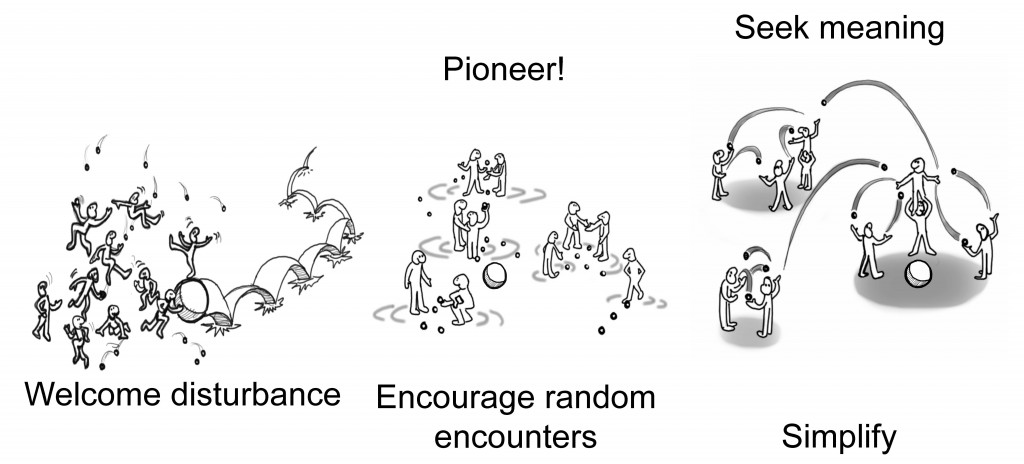The bad news: there is no key to the universe. The good news: it was never locked.
—Swami Beyondananda, Ten Guidelines to Enlightenment
A principle is a fundamental understanding or assumption that guides further understanding or action. Principles help us to make order out of chaos.
If practices guide us in how to do something, principles help us to sort through what to do. They describe the landscape, enabling us to discern useful characteristics so that we can make useful choices. Principles support us in designing our initiatives, organizing our work and ourselves, and determining what to do and how best to do it. For example, a commonly cited medical principle is “First, do no harm.” This fundamental understanding guides life-and-death decisions without prescribing a specific approach.
I derived these principles for engaging emergence by connecting my understanding of emergent change processes with what science tells us about the dynamics of emergence. I asked,
If emergence occurs through
- simple rules,
- no one in charge,
- feedback between and among neighbors, and
- clustering of like with like,
what are the implications for how we engage with it?
The following five principles are my answer to this question. Coupled with a focused intention, they guide us through engaging emergence.
Welcome disturbance. Disruption indicates that the normal behavior of a system has been interrupted. If we ignore the disturbance, chances are that conditions will get worse. If we get curious about it, the disruption could lead to breakthroughs.
Pioneer! Break some habits by doing something different. Prepare and jump into the mystery, working with the feedback that comes.
Encourage random encounters. Remember, no one is in charge. More accurately, we never know which interactions will catalyze innovation. Maximize interactions among diverse agents, knowing that unexpected encounters will likely trigger a shift.
Seek meaning. Meaning energizes us. As we discover mutuality in what is personally meaningful, we come together. Like clusters with like. Shared meaning draws us to common awareness and action. When shared meaning is central, we organize resilient, synergistic networks that serve our individual and collective needs.
Simplify. Principles—simple rules—equip us to work with complexity. When principles break down and the situation grows chaotic, what is essential? What serves now? As answers coalesce, we become a more diverse, complex system around reformed principles at the heart of the matter. 
Principles for Engaging Emergence1
Illustration by Steven Wright
The next five chapters delve more deeply into these principles. Each chapter contains a discussion, a story, and some practices that commonly support the principle.
Back to the Table of Contents

